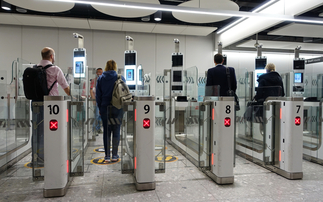In a technology world that is moving fast, ‘disruption' and ‘innovation' have become the watchwords of the day: disruption of business models, platforms, markets, economics, supply chains, and more. But innovation has its downside; at some point, constant change becomes unwelcome, an irritant to the many professionals who understand how to do things the way they've always been done.
As the cloud, digitisation, ‘consumerisation', apps, and mobility have swept into every sector, some business leaders have probably been left wondering when they can simply serve their customers in peace or run internal operations without watching their phone screens for the next existential threat.
Amid all this constant upheaval and the emergence of digital challengers and new social conventions, the fear of change is surprisingly commonplace, even as that change happens all around us. That's particularly true if successful enterprises have benefited from previous waves of disruption that gifted them market dominance - companies that now stand to be usurped by start-ups whose valuations exceed their ability to turn a profit.
An internal perspective
The comfort zone that many organisations seek out extends to their internal processes, including those non-mission-critical functions that keep the business ticking over, such as Human Capital Management (HCM), Accounts, Payroll, or Payments.
There's certainly a sense of ‘risk versus reward' when it comes to back-office functions and where they take place. Many IT and data leaders feel more comfortable playing it safe by remaining on-premises - perhaps because being able to see and interact with systems creates a direct, personal connection with the technology and a sense of professional pride.
Yet this fear of change is really an aversion to risk for many companies. And that means it may also be an aversion to opportunity - in the hope that bolder, more ambitious companies either de-risk a technology for their followers, or, if it fails, take the bullet.
Fear versus reality
But does the fear of migrating back-office functions to the cloud have any basis in fact? After all, missing out on an integrated, cloud-based solution carries its own risk in commercial terms. It could be seen as turning away from cloud's greater agility, scalability, cost predictability, and upgrade cycles. In some ways, cloud platforms manage risk for you.
According to a Computing Research survey of 150 IT leaders in enterprises across the UK economy, around one-third of back-office operations are currently handled in the cloud, with a further third set to make the move. This gives us a pattern that is all too familiar in cloud surveys: a cohort of enterprises opting to be in the vanguard of change and opportunity, a band of followers who wait to see what their bolder competitors do, and a third group that always chooses the status quo.
Risk aversion meets opportunity
Up to 30 percent of respondents are looking to keep Payments, Accounts, Financial Planning, and Supply Chain Management on-premises, demonstrating an underlying aversion to risk. So what factors are stopping these enterprises from moving applications to the cloud?
Respondents cited compliance issues, security concerns, and migration complexity as hurdles to shifting their back-office applications, affecting around 40 percent of naysayers in each case. Roughly one-third of respondents don't see the move as a priority, 14 percent don't see any need for it at all, while others are simply averse to what they believe are the risks.
Yet it must be acknowledged that some cloud platform proponents have experienced problems. One-third reported high costs, while around 40 percent experienced one or more of the following: a lack of relevant skills, security challenges, legacy hardware and software complications, or migration complexity.
Seizing the advantage
Despite this, when asked to what extent they agreed with the statement, ‘The advantages of migrating financial and HCM applications to the cloud outweigh the perceived disadvantages', 77 percent of respondents who have already migrated back-office applications either agreed or strongly agreed with it. Significantly, no one strongly disagreed.
Given the growing regulatory burden, it's no surprise that over 83 percent of respondents said that security was either very important or important in locating financial and HCM applications in the cloud, but even more cited reliability (87 percent).
Also rated as important or very important for back-office deployments were the applications always being up to date (79 percent); cost (77 percent); an improved user experience (75 percent); the availability of a single data set (over 72 percent); automation of tasks (72 percent); access to business insights (over 71 percent); customer service and support (71 percent); and feature comprehensiveness (69 percent).
Looked at in this light, being averse to the perceived risks of the cloud could be seen as avoidance of opportunity.
This article is from Computing's Cloud ERP Spotlight, hosted in association with Workday.

















